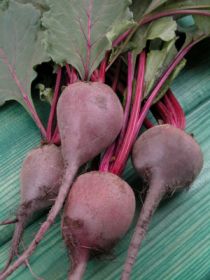Alberta Flood
Our most heartfelt sympathies go out to all the people affected by the recent floods. This is a devastating time but Calgarians are resilient and we will recover. It is wonderful to see the outpouring of generosity that is occurring within the city. Keep up the great work Calgary

Happy Canada Day!!!
A note from Dr. Roberts
“My parents moved from Jamaica to Toronto, Canada to provide a better life for our family. I am grateful to be born and raised Canadian. Though I will never forget my roots, I am grateful for the freedoms and opportunities that this country has given me. I am a proud CANADIAN!!! Happy Canada Day everyone!!”
Featured Article
What is MSG and what is the problem with it?
BY: DR. MELINA ROBERTS
 MSG (monosodium glutamate or sodium glutamate) is the sodium salt of glutamic acid. It is one of the most abundant naturally occurring non-essential amino acids. It is used in the food industry as a flavor enhancer. It has very little taste itself, but it affects our taste and has the ability to make our foods taste better.
MSG (monosodium glutamate or sodium glutamate) is the sodium salt of glutamic acid. It is one of the most abundant naturally occurring non-essential amino acids. It is used in the food industry as a flavor enhancer. It has very little taste itself, but it affects our taste and has the ability to make our foods taste better.
MSG is produced by bacterial fermentation. Sodium is added afterwards through steps of neutralization. L-glutamate is isolated from carbohydrates such as sugar beet, sugar cane, tapioca or molasses. The final product is a white, odourless crystalline powder of glutamate and sodium. MSG is a stable isolate and does not decompose at high temperatures. Though MSG originates from natural substances, the processing of it creates a man-made additive.
It is added to restaurant food, commonly associated with Chinese food, as well as thousands of other foods including canned soups, crackers, meats, salad dressings, baby food and infant formula.
Dr. Russell Blaylock, a board-certified neurosurgeon and author of “Excitotoxins: The Taste that Kills” explains that MSG is an excitotoxin, meaning that it overexcites cells leading to damage or death of cells. Glutamate, the amino acid, is a neurotransmitter that works as a nerve impulse transmitter in the brain as well as other parts of the body. When MSG is consumed, our glutamate receptors can become overstimulated and can cause damage to nerve cells or heart cells and so on.
Short-term symptoms of MSG include: numbness, tingling, burning sensation, chest pain, difficulty breathing, headaches, nausea, rapid heartbeat, drowsiness or weakness.
When reading labels, the following contain MSG: glutamate, glutamic acid, monosodium glutamate, monopotassium glutamate, calcium caseinate, sodium caseinate, autolysed yeast, textured protein, yeast nutrient, , yeast extract, gelatin, hydrolyzed protein, yeast food or natural flavor.
MSG is a challenging additive to avoid and takes effort to read labels, plan and prepare foods, but eating foods that are MSG-free will help to decrease your total body burden of toxins and allow your body to function better. Choosing fresh, whole foods will help you avoid MSG.
Featured Recipe
Beet Salad

Beets are a highly nutritious root vegetable. In addition to being rich in vitamins and minerals, it contains a phytonutrient called glycine betaine which functions as a “methyl donor” and is important for liver function, cellular replication and detoxification.

